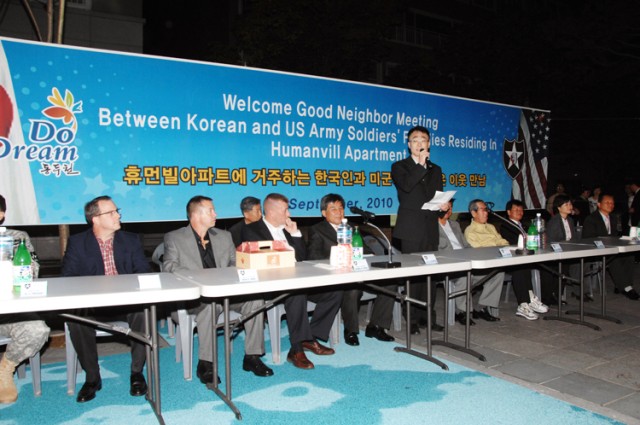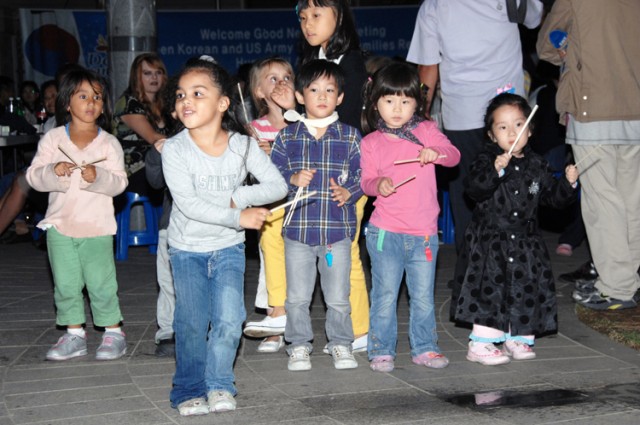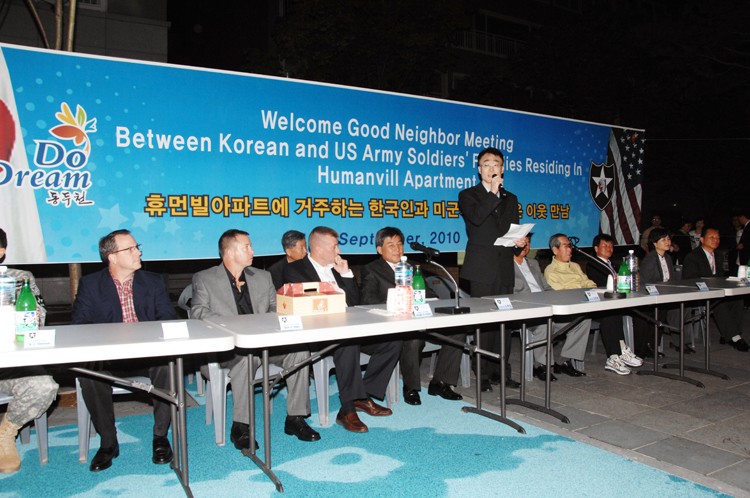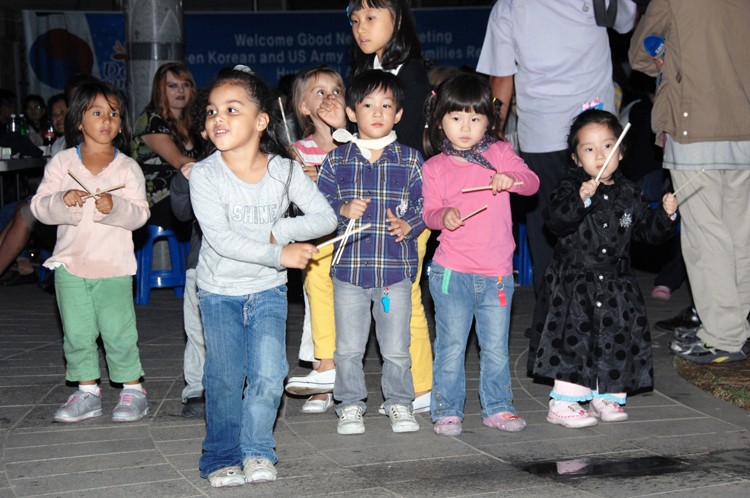DONGDUCHEON, South Korea - Aretha Franklin was nowhere to be found at the Human Vill Apartments Sept. 27, but Dongducheon city and U.S. Army officials in this community that is home to 2nd Infantry Division units were doing their best to tout her message of "respect" for the Korean and American residents living in the 272-unit complex.
As the second in what he has proclaimed to be a series of Good Neighbors meetings, Dongducheon Mayor Oh Sea-chang, other city and U.S. Army officials spent 19-minutes talking to about 250 Korean and American residents from the 10-building complex in Jihaeng-dong about being understanding and sharing each other's culture.
While there haven't been any major incidents, the additional 500 American families that have moved to Dongducheon in the past year as part of the U.S. Forces Korea tour normalization plan have led to some misunderstandings.
The meeting kicked off with a lively 15-minute musical performance by the four-piece Dongducheon City Pungmul band, "Edam." As they drummed to the beat of farmer's music, the children from both nations gathered around them and jointly swayed to the syncopated beat.
"You are strengthening our nations' diplomatic relations through your life in the Human Vill Apartment," Oh told the residents packed into Central Park between four 15-story towers.
The mayor told the Korean residents their children have an opportunity to learn English, and asked them to help their neighbors learn Korean. Lt. Col. Richard Fromm, Casey Garrison commander, thanked the residents and city officials for continuing to welcome American families to Dongducheon. He also issued a challenge for the Soldiers in the complex.
"I challenge you to get out and experience this culture with your Korean counterparts," he said over the noise of Korean and American children playing together in the background. "The Korean culture is rich in history and tradition, and you'll have a great time here."
Fromm also reassured Korean residents he is committed to working with city officials to overcome any misunderstandings that may occur between the citizens of both nations.
Dongducheon City Council chairman, Im Sang-oh, talked about the long history of the U.S. Army in Dongducheon. He concluded his remarks by asking the apartment residents to do two things: understand and accept their differences, and be considerate of each other so they can overcome any difficulties.
Following the remarks by apartment, city and Army officials, the Bulhyeondong Saemaeul Women's Association served residents "japchae" - stir-fried noodles and vegetables, "songpyeon" - a half moon-shaped doughy treat, "bulgogi" - marinated meat, kimchi, grapes and drinks.
Staff Sgt. Charles Evans from Headquarters and Headquarters Company, 70th Brigade Support Battalion, was one of numerous Americans to attend. He moved into the complex when in July 2009 - two months after it opened - with his wife and their three children.
"When I first moved here there was some tension because (Americans) didn't understand how things work," he said.
Evans cited "accidents" left behind by irresponsible pet owners. He also said Americans occasionally gathered in Central Park and talked into the evening hours, much as they do back home. The difference, he said, is the sound is magnified in the enclosed area and disturbed the Korean residents.
Evans also cited Dongducheon's mandatory recycling program and specifically the meticulous manner in which rubbish is separated as another source of conflict. He said now that Americans understand these concerns there are fewer conflicts between the residents. Evans said meetings like this are helpful.
"I enjoyed myself and I met a few more neighbors," he said. "It was worthwhile."




Social Sharing